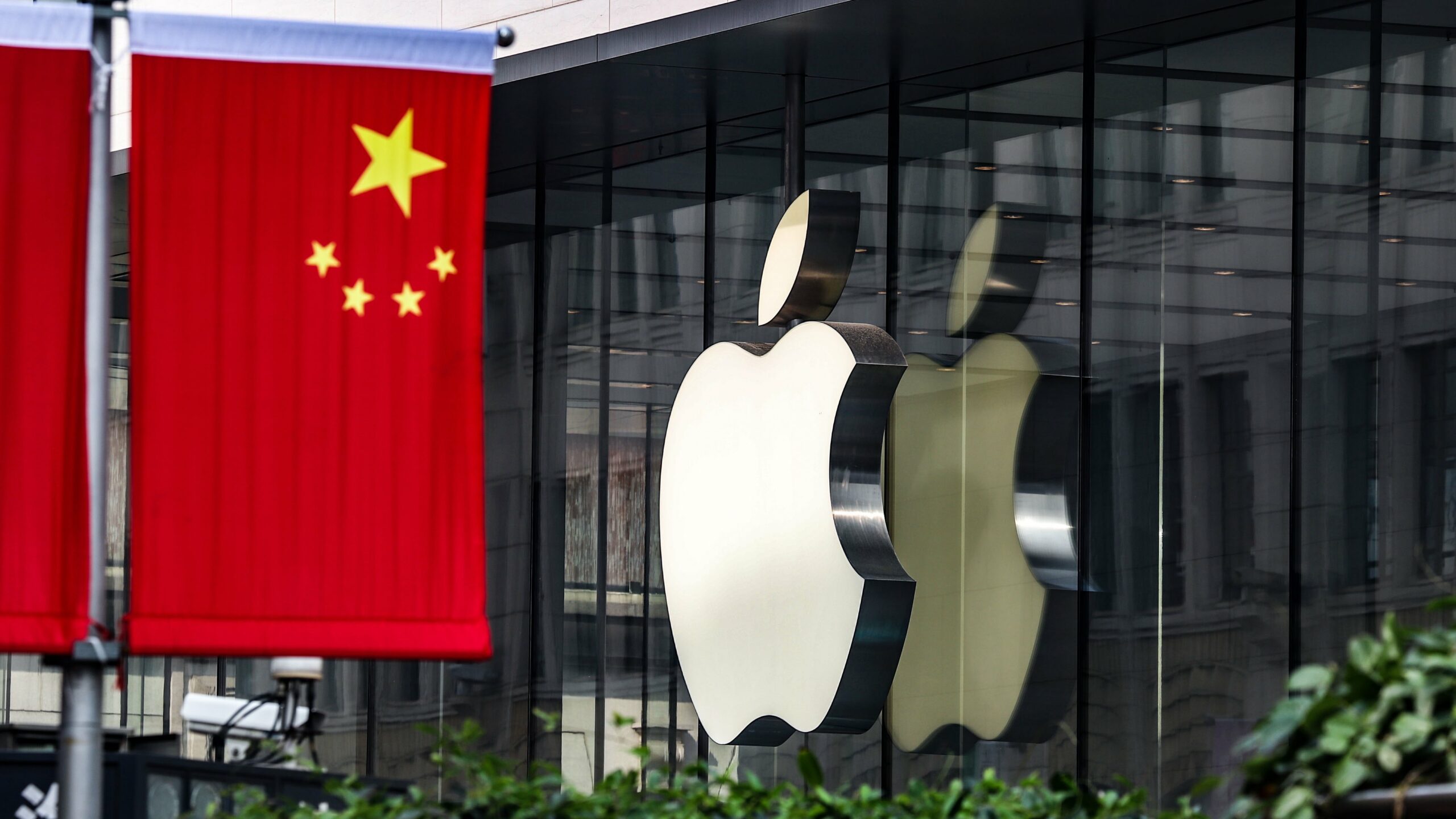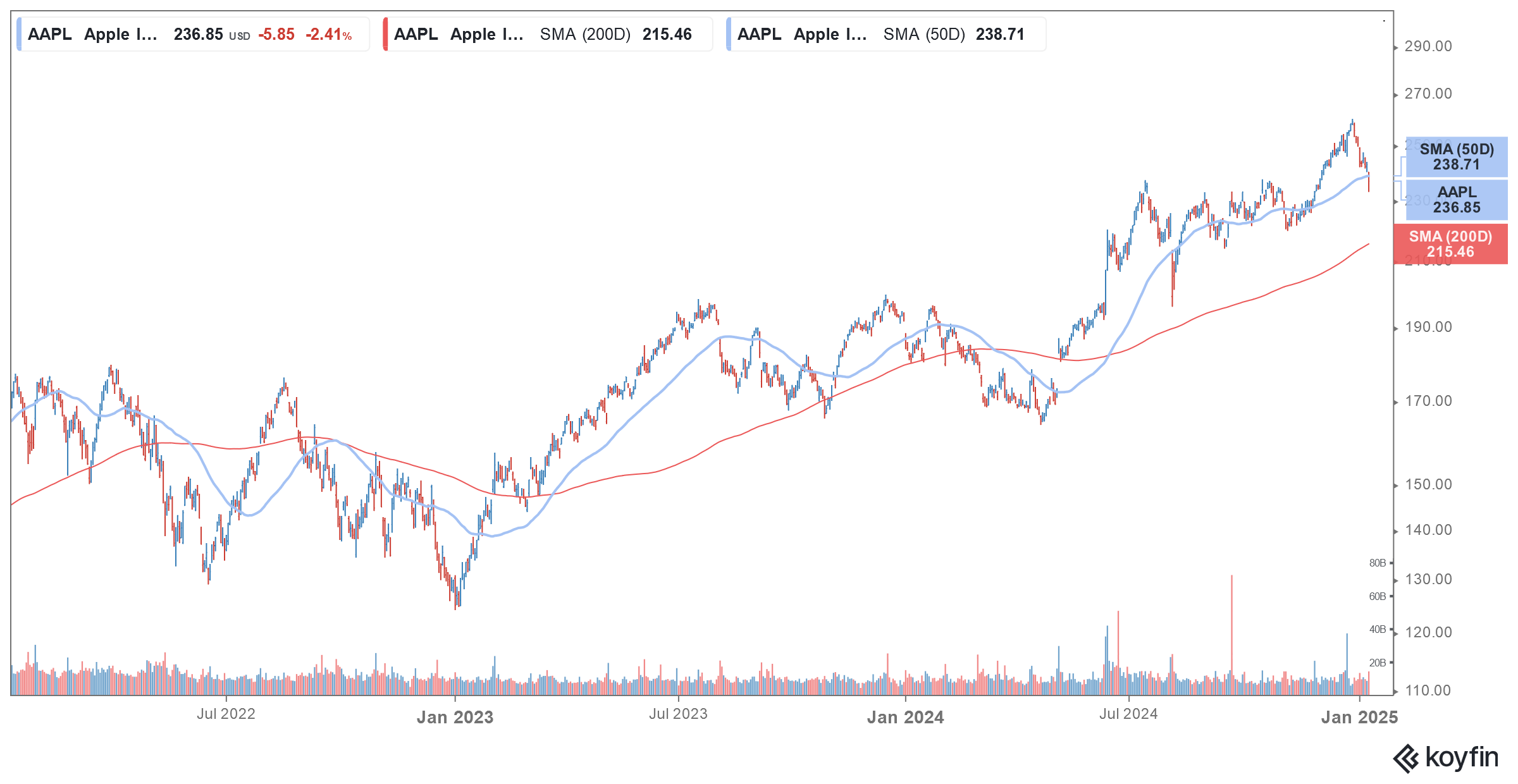
Ming-Chi Kuo who is among the leading analysts covering Apple is circumspect about iPhone sales this year and sees the consensus estimates as too high. He also warned that Apple is losing market share in China which is its second-biggest market after the US.
In his note, Kuo said that in its talks with key suppliers, Apple has been cautious about production plans for this year. He warned that Apple’s 2025 iPhone shipments could be between 10%-12% lower than consensus estimates.
“Even with the new iPhone SE4 (expected to launch around mid-1H25), iPhone 1H25 shipments are projected to decline by about 6% YoY. (1Q25 shipments were roughly flat YoY due to front-loading in January ahead of Trump’s tariff policy, while 2Q25 is expected to decline,) he said in his note.
Analyst sees tepid iPhone sales in 2025
Kuo also said that Apple seems to be losing market share in China and referred to the latest data that shows while overall smartphone shipments were nearly flat, iPhone shipments were down by between 10%-12% in December.
“The 2H25 ultra-thin iPhone (with the thinnest part around 5.5mm) and the foldable iPhone, which is in the planning stage, will likely only support eSIM due to their ultra-thin design. Given that Chinese market currently does not promote phones that only support eSIM, these two models could face shipping momentum challenges unless their design is modified,” said Kuo in his note.
Huawei has gained market share in China
In Q3, Apple was the second largest smartphone company in China with a market share of 15.6% which was slightly ahead of Huawei’s 15.3% share, according to data from International Data Corporation (IDC). However, while Apple’s market share dipped from 16.1% in the corresponding period last year and its shipments were almost flat during the quarter, Huawei’s shipments rose an impressive 42%.
“Huawei has staged an impressive comeback, recording four consecutive quarters of at least double-digit growth. The launch of the world’s first tri-foldable phone is expected to further drive the foldable market development,” said the IDC in its release.
Apple has been gradually losing market share in China as domestic smartphone companies, especially Huawei whose business suffered a near-death blow due to the US sanctions, have come up with attractive offerings. Huawei recently cut prices in China post which Apple was also forced to offer discounts in the country.
Apple Intelligence
Last year, Apple began rolling out Apple Intelligence features that it had unveiled during the Worldwide Developer Conference (WWDC) in June. These artificial intelligence (AI) features were expected to spur iPhone sales but so far, we haven’t seen a major bump.
Referring to an interview by Apple CEO Tim Cook where he said that the company hasn’t decided on the pricing for Apple Intelligence, Kuo said, “It implies that previous optimistic forecasts by some analysts and media about Apple Intelligence generating subscription revenue and driving services business in the foreseeable future were overly optimistic.”
Notably, Apple Intelligence features are not currently available in China as well as the E.U. as the company faces regulatory roadblocks in offering AI features in these regions.
Analysts believe rolling out AI features in China won’t be easy for Apple. Bryan Ma, vice president of devices research at IDC, told CNBC via email. “China is in another world when it comes to AI given the regulatory environment there, so China is a big asterisk on Apple’s big announcements last week.”
AAPL has partnered with ChatGPT which is not available in China. Apple has reportedly been in talks with Chinese tech companies like Alibaba, Baidu, and Baichuan AI for partnership in the Chinese market.
China has been quite protective of the data of its citizens. It has banned government employees from using Apple’s iPhone and the Cupertino-based company removed Meta Platforms’ apps from the Chinese App Store last year on orders from the government. Meta’s apps like WhatsApp and Threads were anyways mostly inaccessible to Chinese users but Apple removing them from the App Store makes it even tougher to access these apps in the country.
Analysts are not too bullish on AAPL shares
Wall Street analysts have also been somewhat circumspect about Apple this year. Earlier this month, Barclays reiterated AAPL as an “underweight.” In its note, the brokerage said, “2024 saw another year with most of the stock performance driven by multiple expansion despite a weaker-than-expected iPhone 16 launch and more heightened regulatory risks. We expect 2025 to start out with a mixed at best earnings release for the December quarter.”
Moffett Nathanson also downgraded the share from “neutral” to “sell” while slashing the target price from $202 to $188. In his note, analyst Craig Moffett said, “As great a company as Apple is, the outlook for Apple’s shares, given this challenging backdrop, is, unfortunately, decidedly unattractive.” He added, “A valuation that was already rich got richer, even as the rationale for why it was rich has taken on water.”
US-China tensions are a risk for Apple
Growing US-China tensions are a potential risk for Apple investors. US-China relations which are anyways at the lowest level in decades might deteriorate further if President-elect Donald Trump goes ahead with the tariffs as he has threatened. For Apple, China is a major market and also a sourcing hub. In the past also, the company has faced boycott calls in China. However, it downplayed the risks and said that it did not have a material impact on sales. While Apple has been trying to diversify its supplier base after the US-China trade war, the company still heavily relies on Chinese suppliers.
Meanwhile, Apple was the second-worst performing constituent of the “Magnificent 7” group last year and the worst performer in 2023. The shares have already lost 6% in 2025 amid the market sell-off and concerns over the sales outlook this year.


Question & Answers (0)